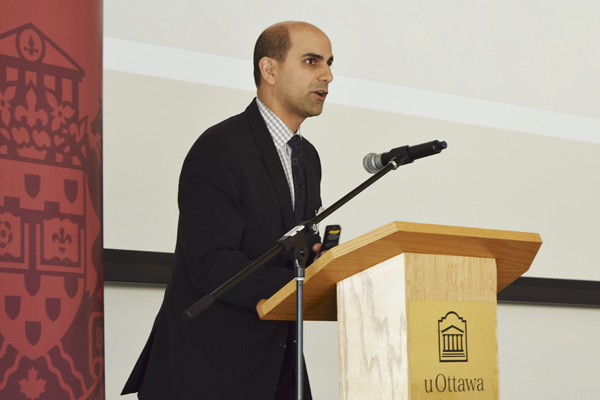Explosive work with U of O professor
On Oct. 7, 2021, University of Ottawa professor Keiko Hattori interviewed with the Fulcrum to discuss her research involving volcanoes, her field work, and career advice for emerging scientists.
Hattori was the first female undergraduate student to study geology at the University of Tokyo, where she went on to complete her master’s and PhD in isotope geochemistry. Although geology was an emerging field at the time, many places of employment were not accustomed to female applicants.
To overcome this, professor Hattori applied to do her post-doc at the University of Alberta. Over the course of her academic career, she was able to establish herself as a Canadian mineralogist and secure positions as an elected fellow for the Royal Society of Canada and Mineralogy Society of America, as well as associate editor for Nature publications and other scientific reports.
From there she secured a research position at the University of Ottawa. As a result, she has trained over 30 students, has worked around the world, and is widely published.
Hattori explained her current research further: “When you look at volcanoes they’re discharging lots of chlorine, carbon dioxide, and they also deposit lots of gold and copper. However, if nothing is being supplied then they should be drying out. Something must be constantly supplying the volcanoes. This is called subduction where the oceanic lithosphere composed of iodine, and bromine are sinking more than 200km below the earth’s surface.”
She added, “so how can such volatile things [magma] keep getting discharged and where is it being supplied? This can be explained by what we call recycling and I focus on the recycling of metals and volatiles.”
Hattori used to study active volcanoes because she was interested in studying what types of volatiles (carbon dioxide, chlorine, etc.) were being emitted by volcanoes. She described her work around volcanoes as, “very dangerous — lots of things are coming out, they also become steeper and steeper as you get close to the top. It wasn’t until I experienced an active volcano in Columbia, where quite a few people died, that I decided to study inactive volcanoes.”
Over the past 14 years, Hattori has conducted research in the Himalayan alps, Pakistan, Northern India, China, Japan, and the Dominican Republic. There, she collected mineral samples to examine their levels of fluorine and chlorine which can help the researcher better understand what materials are being subducted and what is being uplifted.
Hattori had been interested in chemistry from a young age however, it wasn’t until a university classmate suggested she go hiking on the mountains in Japan. There she decided she wanted to incorporate outdoor activity into her work. During her undergrad, Mount Akita-Komagatake located in the northern part of Japan had erupted. She described the eruption as a flowing water fountain. At the time of this event, many other exciting moments were happening in geoscience, all of which encouraged her to pursue this discipline.
When asked about her most memorable day in the field, she responded, “I had a project where I was working in northern Canada. Those areas had beautiful northern lights, the green and red colours filled the entire sky, and every second it kept changing. For hours and hours there was just incredible colour right above us.”
Professor Hattori believes that because students have the liberty to choose their program in university, this can lead to self-doubt and confusion. To combat this, Hattori suggests that each step you make throughout your academic career needs to be made with confidence, otherwise you will regret your decisions and this will keep you from moving forward.
When asked if she could provide any insight to students looking to pursue a career in science research, Hattori responded, “throughout our lives we will always have some problems, sometimes, we think there’s just no way I can advance, and then we start to become depressed, but there is always some way.”
She continued, “even for myself in my program, I was the only female, and the chairman at the time told me it would be better for me to change programs because there won’t be any jobs for me when I graduate. I thought to myself maybe I can manage. I would say that students need to be more confident in themselves, they need to always be thinking about future possibilities. If I hadn’t asked around I would have never found out that the University of Alberta was looking for a post doctor in isotope geochemistry.”
Currently, Hattori is teaching upper-year subduction zone geochemistry courses. In the future, she hopes to continue her research on volcanoes. For more information about professor Keiko Hattori, you can visit her website here.





